Snorkeling Vietnam, a haven for every enthusiasts, offers an unparalleled underwater experience. Embracing snorkeling isn’t just about exploring marine beauty; it’s a cultural immersion. From the vibrant coral reefs to the azure waters, each dive unveils a piece of Vietnam’s natural heritage. Join us as we navigate through the significance of snorkeling in Vietnamese culture and provide insights into the key destinations that make Vietnam a premier snorkeling destination.
See more: Uncover Vietnam’s Beaches – Your Tropical Getaway.
Contents
Discovering Vietnam’s Superlative Snorkeling Havens
Vietnam’s extensive coastline is adorned with a diverse array of coral reefs, rendering it an idyllic retreat for snorkeling aficionados. Join us as we embark on an exploration of the finest destinations, each offering a distinct underwater odyssey.
- Hon Mun Marine Park: Nestled adjacent to Nha Trang, Hon Mun Marine Park is a sanctuary boasting limpid waters and an opulent tapestry of coral reefs. Within this protected marine expanse, a plethora of marine life, including rare species, flourishes. The park’s unwavering commitment to conservation not only enhances its allure but also establishes it as a sustainable haven for snorkeling enthusiasts.
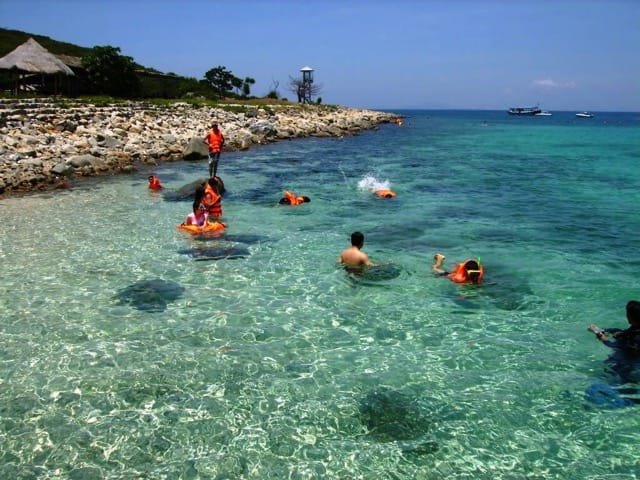
- Nha Trang Bay: Globally acclaimed, Nha Trang Bay unveils an enchanting underwater realm. Adorned with coral gardens and islets, the bay presents a diverse ecosystem, inviting snorkelers to delve into its pristine waters. The juxtaposition of immaculate beaches and scenic landscapes complements the vibrant marine life, ensuring an immersive and unforgettable snorkeling experience.
For those seeking relaxation and a sun-kissed escape, Nha Trang Beach’s tranquil ambiance provides the perfect backdrop.
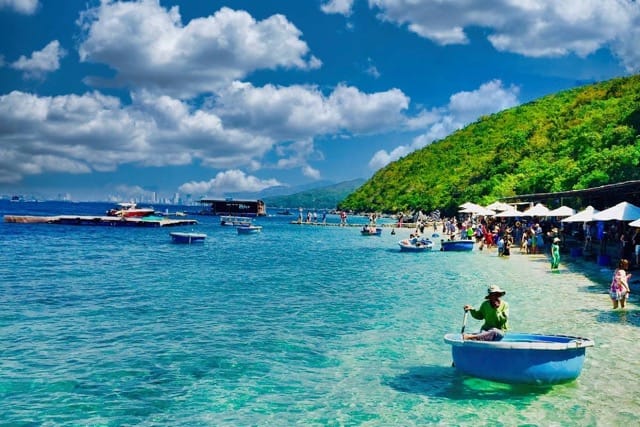
- Phu Quoc Island: Situated in the Gulf of Thailand, Phu Quoc Island stands out as a jewel for fervent snorkeling enthusiasts. Encompassing a vast 480 hectares, its expansive coral reefs host a diverse array of marine species. The sheer abundance of large, vivid coral formations beneath the crystalline waters imparts a unique charm to Phu Quoc, making it an unparalleled snorkeling destination that seamlessly blends underwater wonders with the island’s intrinsic allure.
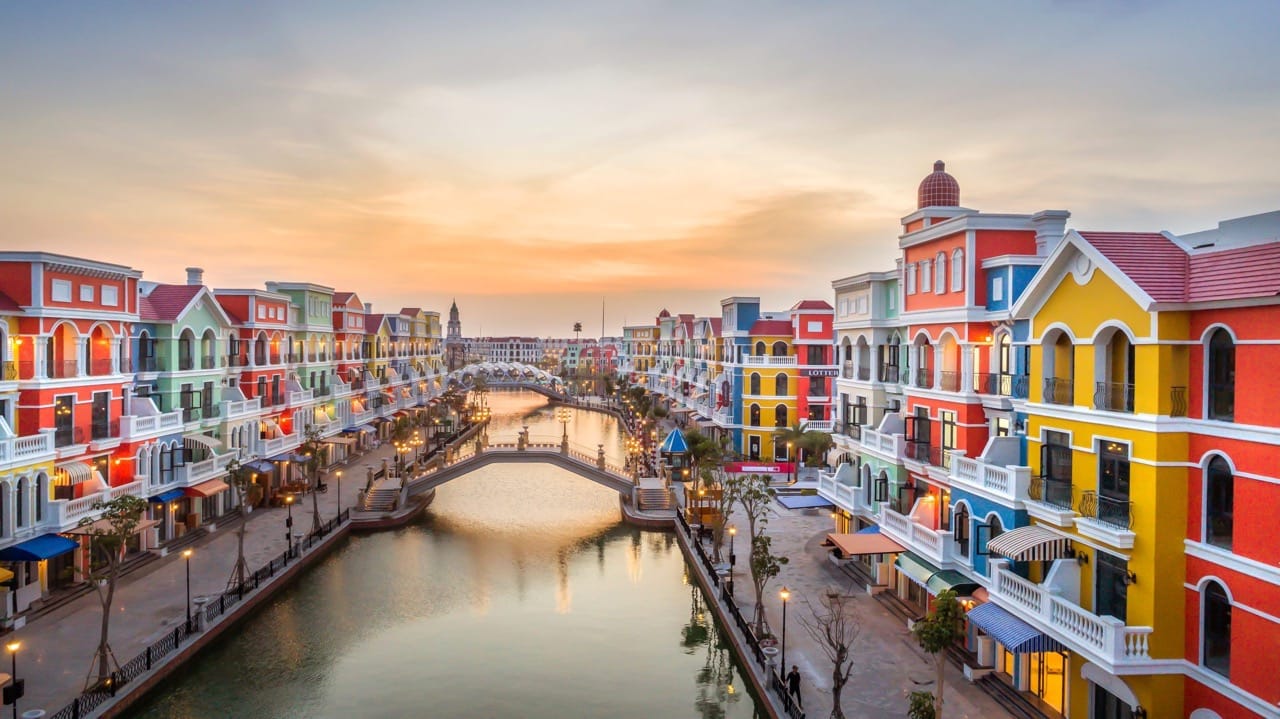
- Cham Islands: Bestowed with UNESCO Biosphere Reserve status, the Cham Islands near Hoi An offer a tranquil haven for snorkelers. The coral-rich waters surrounding these islands harbor a plethora of species, and a commitment to sustainable tourism practices ensures a harmonious equilibrium between exploration and conservation. The Cham Islands stand as an exemplar of a serene escape where underwater beauty is explored with a conscientious regard for marine ecosystems.
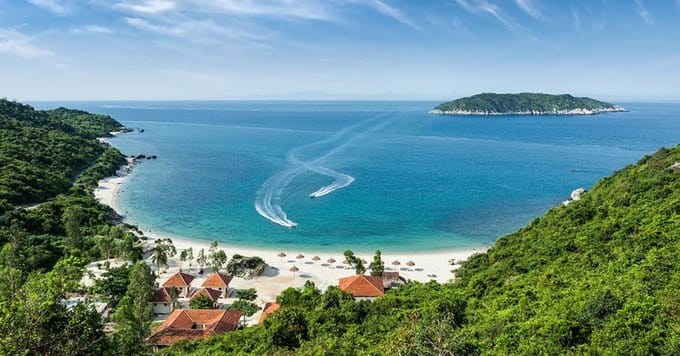
- Con Dao Islands: Catering to those in search of a secluded snorkeling escapade, the Con Dao Islands present pristine coral reefs and a vibrant marine tapestry. The archipelago’s unperturbed waters and unspoiled beauty create an intimate ambiance, positioning Con Dao as an ideal destination for those yearning for a tranquil communion with Vietnam’s submerged wonders.
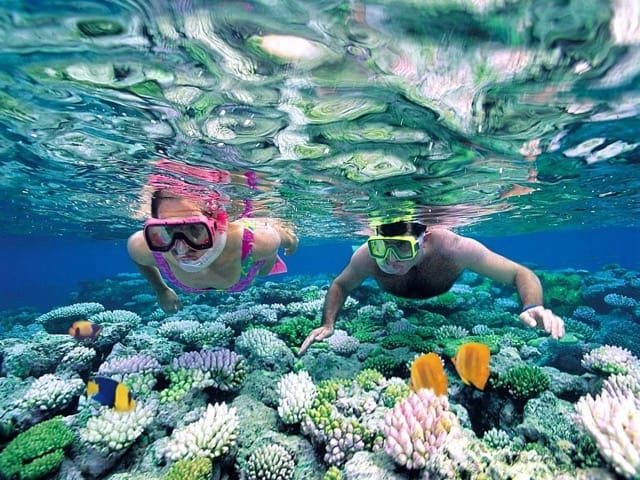
Vung Tau Beach is the perfect destination for a seaside escape.
Planning Your Snorkeling Vietnam Adventure
Embarking on a snorkeling adventure in Vietnam promises an exploration of vibrant coral reefs and diverse marine life. To ensure your experience is seamless and enjoyable, strategic planning is crucial. In this guide, we’ll delve into seasonal considerations, tour options, and essential equipment for your underwater journey.
Best Time to Snorkel in Vietnam
Ideal Months for Snorkeling
Vietnam’s climate plays a pivotal role in determining the best months for snorkeling. Generally, the dry season, spanning from November to April, provides optimal conditions. During this period, you can expect clear waters and calm seas, enhancing the overall snorkeling experience. However, it’s essential to note that specific months may vary by location, so researching the climate of your chosen destination is advisable. For instance:
- Phu Quoc Island: The ideal time for snorkeling in Phu Quoc is from November to April when the sea is calm, and the water is clear, providing optimal conditions for underwater exploration.
- Nha Trang Bay: March to June is the prime period for snorkeling in Nha Trang, offering clear waters and pleasant weather conducive to an immersive marine experience.
Understanding Weather Conditions and Their Impact
While the dry season is generally favorable for snorkeling, it’s crucial to be aware of potential weather fluctuations. Keep an eye on forecasts and be prepared for occasional rain or storms, especially during the transitional months. Weather conditions can impact water visibility and safety, so staying informed ensures you make the most of your snorkeling adventure.
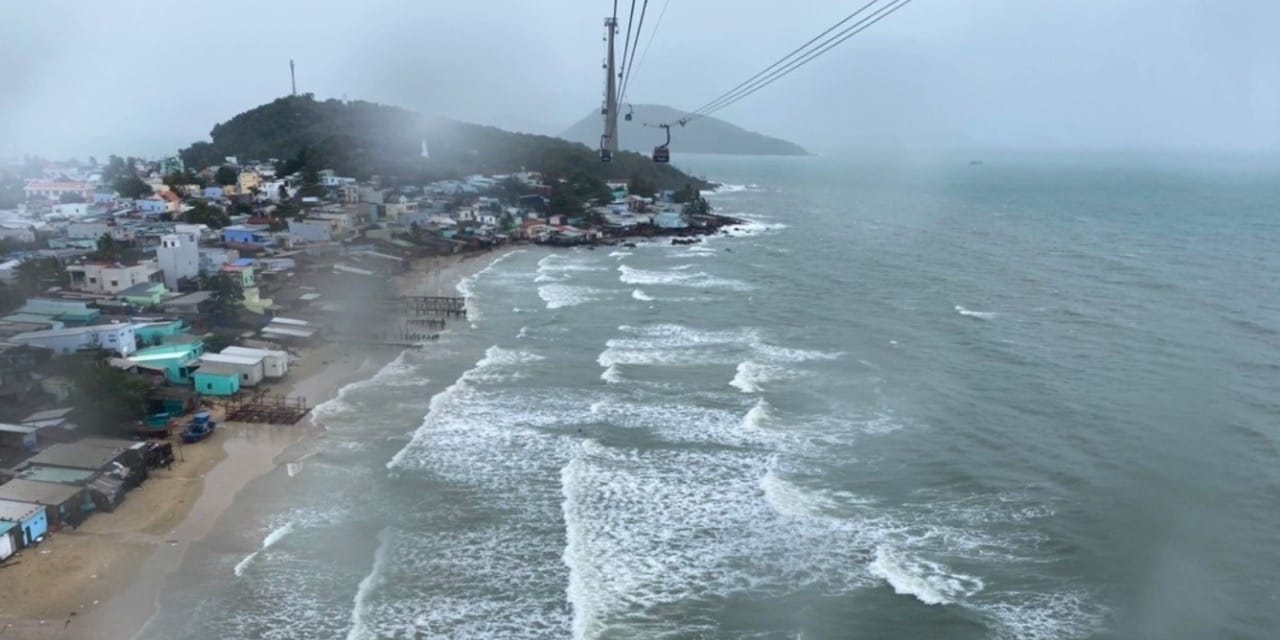
Snorkeling Vietnam Tours and Packages
- Guided Snorkeling Excursions: Opting for guided snorkeling excursions enhances your overall experience. Knowledgeable guides not only provide insights into the marine life and ecosystems but also ensure your safety throughout the journey. Guided tours often include transportation, equipment, and sometimes even lunch, offering a hassle-free and informative way to explore Vietnam’s underwater wonders.
- Tour Operators Specializing in Snorkeling Trips: Choosing the right tour operator is paramount for a memorable snorkeling adventure. Look for operators with a specialization in snorkeling trips, as they often have experienced guides and well-designed itineraries. Reviews and recommendations from fellow snorkelers can provide valuable insights into the reputation and reliability of tour operators.
Snorkeling Equipment for Vietnam’s Waters
- Rental Options: If you prefer to travel light, many snorkeling destinations in Vietnam offer equipment rentals. Renting snorkeling gear, including masks, snorkels, fins, and wetsuits, is a convenient option. Before choosing this route, ensure that the rental equipment is well-maintained, fits properly, and meets safety standards. Some locations may also provide guided rental packages for a more comprehensive experience.
- Recommended Gear Based on Vietnam’s Conditions: When bringing your snorkeling gear, consider the following recommendations tailored to each destination’s conditions:
- Mask: Choose a mask that provides a comfortable fit, with a tight seal to prevent water entry. Opt for anti-fog coatings for enhanced visibility.
- Snorkel: Select a snorkel with a comfortable mouthpiece and a purge valve for easy clearing. A dry-top feature prevents water from entering while submerged.
- Fins: Lightweight and flexible fins are ideal for maneuverability. Ensure a snug fit without causing discomfort.
- Wetsuit/Rash Guard: While not always necessary, a wetsuit or rash guard can provide protection from the sun, jellyfish, and coral. Choose appropriate thickness based on water temperature.
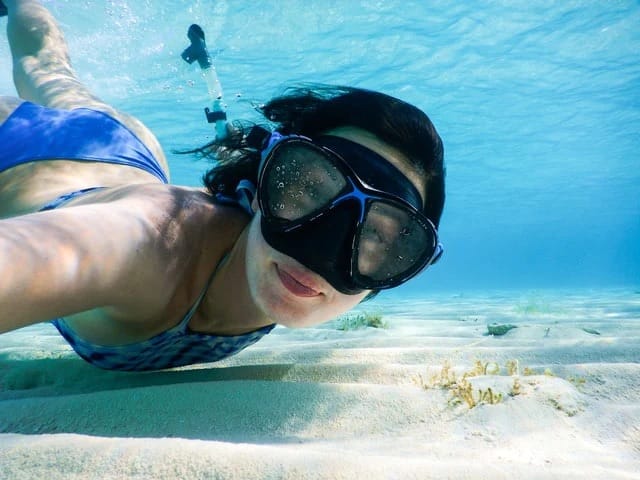
Preparing All the Necessary Equipment – Source: Collected
Ensuring a Safe and Memorable Snorkeling Experience in Vietnam
Venturing into the azure waters of Vietnam for a snorkeling adventure promises a mesmerizing encounter with vibrant marine life. To ensure your underwater exploration is not only memorable but safe, adhering to essential safety guidelines is paramount.
General Guidelines for Safe Snorkeling:
- Swim with a Buddy: Always snorkel with a partner. In case of any unforeseen circumstances, having a buddy enhances safety and ensures immediate assistance if needed.
- Know Your Limits: Be aware of your swimming abilities and choose snorkeling locations that align with your skill level. Avoid venturing too far from the shore if you are not a confident swimmer.
- Respect Marine Life: Maintain a safe distance from marine creatures and coral reefs. Avoid touching or disturbing them, as this not only protects the delicate ecosystem but also minimizes the risk of accidental encounters with potentially harmful species.
- Stay Calm in Currents: If caught in a current, remain calm and signal for assistance. Avoid exhausting yourself by swimming against the current; instead, swim parallel to the shore until you are out of the current’s pull.
Potential Hazards and How to Be Aware:
- Weather Awareness: Keep an eye on weather forecasts before embarking on your snorkeling adventure. Sudden changes in weather conditions can affect water visibility and pose safety risks. Postpone your snorkeling plans if adverse weather is anticipated.
- Marine Life Caution: While the marine life in Vietnam is diverse and captivating, some species may pose potential risks. Familiarize yourself with the local fauna, particularly any species known for their stinging or venomous nature. Exercise caution and avoid contact with unknown marine life.
- Watch for Boat Traffic: In popular snorkeling areas, boat traffic may be present. Stay within designated snorkeling zones and be cautious of boat movement. Use a brightly colored flotation device or snorkel flag to enhance visibility to boats.
- Check Your Equipment: Before entering the water, ensure that your snorkeling equipment is in good condition.
Check the mask for proper fit and clarity, the snorkel for functionality, and the fins for comfort. Address any issues promptly to avoid complications during your snorkeling session.
Cultural and Ecological Insights
Embarking on a snorkeling adventure in Vietnam is not merely an exploration of underwater wonders; it’s an opportunity to immerse yourself in the rich tapestry of local culture and contribute to marine conservation efforts. Let’s delve into the cultural and ecological insights that can elevate your snorkeling experience.
- Interactions with Local Communities: Engaging with local communities adds a profound layer to your snorkeling journey. In coastal areas like Nha Trang and Phu Quoc, interact with the friendly locals to gain insights into their traditional ways of life. Local fishermen may offer boat rides to secluded snorkeling spots, providing a glimpse into their daily routines and sharing stories that deepen your connection to the region.
- Cultural Aspects Related to Snorkeling Locations: Snorkeling spots in Vietnam often bear cultural significance. For instance, the Cham Islands near Hoi An hold UNESCO Biosphere Reserve status, underscoring their ecological importance and cultural heritage. Respect the local customs when visiting these sites, and consider guided tours that incorporate cultural narratives, offering a holistic experience that goes beyond the underwater realm.
- Conservation Efforts in Marine Areas: Vietnam is actively involved in marine conservation, recognizing the importance of preserving its coastal ecosystems. Hon Mun Marine Park, near Nha Trang, stands as a testament to such efforts. Established to protect marine biodiversity, the park combines ecological preservation with responsible tourism. Contribute to conservation by choosing operators committed to sustainable practices, ensuring your visit leaves a positive impact.
- Eco-friendly Snorkeling Practices: Embrace eco-friendly snorkeling practices to minimize your ecological footprint. Choose reef-safe sunscreen to protect both your skin and the underwater environment. Be mindful of where you place your fins to avoid unintentional damage to coral. Participate in organized beach clean-ups or conservation initiatives offered by local organizations to actively contribute to preserving the marine ecosystems you explore.
Logistics, and Budget-Friendly Snorkeling in Vietnam
Embarking on a snorkeling adventure in Vietnam unveils a world of underwater marvels waiting to be captured. From photography tips to essential logistics and budget-friendly options, let’s explore how to make the most of your aquatic exploration in this enchanting destination.
Visa Requirements for Tourists
- Research Visa Policies: Before heading to Vietnam, familiarize yourself with the country’s visa policies. Citizens of some countries can enjoy visa exemptions for a certain period, while others may require a visa. Ensure your travel documents are in order to avoid any hiccups upon arrival.
- Apply in Advance: If a visa is required, consider applying in advance to streamline your entry process. Many nationalities can apply for an e-visa or visa on arrival, making the process convenient for snorkelers eager to explore Vietnam’s coastal wonders.
Transportation Options to Snorkeling Locations
- Local Transportation: Utilize local transportation options to reach snorkeling destinations. Buses and trains are cost-effective and offer a chance to experience Vietnam’s scenic landscapes. In coastal areas like Nha Trang and Da Nang, local boats or ferries can take you to prime snorkeling spots.
- Domestic Flights: For destinations like Phu Quoc or Con Dao Islands, consider domestic flights for time efficiency. Numerous airlines operate flights to these island paradises, providing a quicker route to the azure waters that await beneath.
Budget-Friendly Snorkeling in Vietnam
- Cu Lao Cham: Located near Hoi An, Cu Lao Cham offers budget-friendly snorkeling opportunities. Accessible by boat, this island is a haven for both snorkeling and cultural exploration.
- Vinh Hy Bay: In Ninh Thuan, Vinh Hy Bay provides affordable snorkeling excursions. Its diverse marine life and stunning coral reefs make it an ideal destination for those seeking a budget-friendly underwater experience.
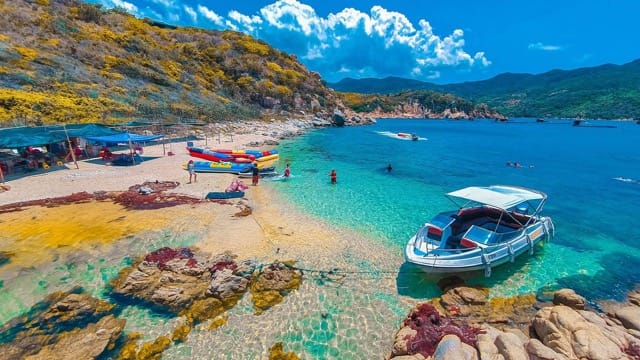
Vinh Hy Bay – Source: Collected
Tips for Saving Money on Snorkeling Trips:
- Opt for Local Operators: Choose local snorkeling operators for a more affordable experience. They often provide competitive prices without compromising on safety or quality.
- Bring Your Gear: If you have your snorkeling gear, consider bringing it along. Rental costs can add up, and using familiar equipment ensures a comfortable and budget-conscious experience.
For the adrenaline junkies, Da Nang’s beaches offer a playground of coastal thrills.
Conclusion
Embrace the wonders of Vietnam’s underwater realm, where each snorkeling spot tells a unique tale. From the crystalline waters of Phu Quoc to the UNESCO Biosphere Reserve of Cham Islands, the country’s coastal treasures invite exploration. Dive not only into the depths but also into cultural richness, engaging with local communities and contributing to marine conservation. This fusion of natural beauty, cultural immersion, and ecological stewardship creates an unforgettable snorkeling adventure, leaving indelible memories beneath Vietnam’s enchanting wave.


Related Posts
Saigon’s “Flower Market Replica”: Where To Find Them
Ho Chi Minh City’s floral charm is not limited to its bustling wholesale markets. Imagine wandering through a place where vibrant petals, fragrant blooms, and the spirit of traditional Vietnamese markets come alive—without the overwhelming crowds. A flower market replica captures that magic, blending the beauty of fresh flowers with the charm of a curated, […]
Is it Safe to Travel to Vietnam Right Now? A Complete 2025 Guide
Vietnam has emerged as one of Southeast Asia’s most captivating destinations, drawing millions of visitors annually with its rich culture, stunning landscapes, and incredible cuisine. However, many travelers still ask: Is it safe to travel to Vietnam right now? This comprehensive guide provides you with everything you need to know about Vietnam travel safety in […]
Ho Chi Minh Cu Chi Tunnels Tour: The Ultimate Guide
The Cu Chi Tunnels stand as one of Vietnam’s most remarkable historical sites, offering visitors a profound glimpse into the ingenuity and resilience displayed during the Vietnam War. For travelers, a Ho Chi Minh Cu Chi tunnels tour represents an essential experience that combines education, adventure, and deep cultural understanding. This comprehensive guide will help […]